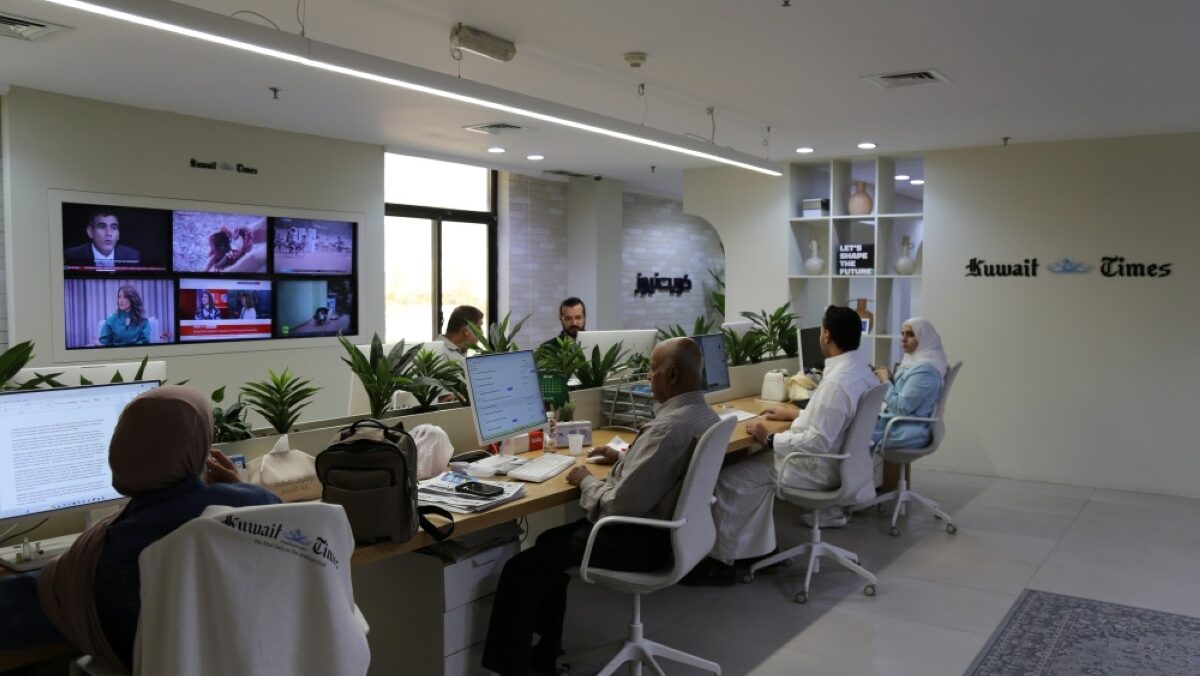Kuwait stands at the cusp of a technological renaissance, uniquely positioned to harness the transformative power of artificial intelligence (AI). With a robust digital infrastructure, visionary leadership, and a strategic commitment to innovation, the nation is embracing AI as a catalyst for economic diversification and societal advancement. The coming years are likely to witness profound changes across industries, public services, and everyday life as AI technologies reshape the country’s future.
Strategic Vision and National Commitment
Central to Kuwait’s AI journey is its National AI Strategy (2025–2028), a comprehensive roadmap aligned with Vision 2035. This strategy outlines a clear plan for integrating AI across key sectors while emphasizing responsible deployment, data governance, and ethical considerations.
The government has made it a priority to establish policies that ensure privacy, cybersecurity, and ethical AI use. By doing so, Kuwait is not just adopting AI technologies but is setting itself up as a regional hub for innovation, research, and development. This strategic approach is vital for sustaining long-term economic growth while fostering a culture of technological excellence.
Thriving Digital Ecosystem
Kuwait’s highly connected population and tech-savvy youth form a fertile ground for AI adoption. Smartphone penetration, internet connectivity, and digital literacy are among the highest in the region, creating a strong foundation for AI-driven services.
The private sector is playing a significant role in this ecosystem. Banks are deploying AI for personalized customer experiences and fraud detection, healthcare providers are integrating AI to improve diagnostics and patient care, and logistics companies are optimizing delivery routes using intelligent algorithms. Real estate firms are leveraging AI for property valuation and market analysis. This widespread adoption reflects the nation’s recognition of AI’s potential to enhance efficiency, drive growth, and elevate overall service quality.

Empowering Workforce Transformation
AI is not just transforming businesses; it is reshaping the workforce as well. Recognizing this, Kuwait is investing heavily in reskilling and upskilling programs. These initiatives aim to equip citizens with critical AI-related skills, ensuring they remain competitive in an evolving job market.
Educational institutions are introducing AI courses and collaborating with global tech companies to provide training programs. Public and private organizations are also facilitating workshops and seminars focused on practical AI applications. By preparing the workforce proactively, Kuwait ensures that its human capital evolves in tandem with technological advancements, reducing the risk of job displacement and creating new opportunities for innovation-driven employment.
Public Sector Innovation
The public sector in Kuwait is embracing AI to improve governance, efficiency, and public services. AI-powered surveillance systems, smart traffic management solutions, and digital identity programs are being implemented to enhance safety, transparency, and administrative efficiency.
AI is also being used to analyze large volumes of data for decision-making in areas like healthcare, urban planning, and energy management. By integrating AI into public services, Kuwait is creating a more responsive and citizen-centric government. These initiatives not only improve the quality of life for residents but also set a benchmark for regional excellence in public sector innovation.
Private Sector Leadership
Kuwait’s private sector is at the forefront of AI innovation. Businesses are collaborating with international technology leaders to implement AI solutions that drive growth and efficiency.
Financial institutions use AI for risk assessment and predictive analytics, while e-commerce platforms deploy AI-powered recommendation engines to enhance customer experience. Startups in Kuwait are experimenting with AI-driven solutions in fintech, health tech, and smart logistics, creating an ecosystem of innovation that fuels entrepreneurship and positions the country as a regional tech hub.
Ethical AI Deployment
Kuwait’s commitment to ethical AI deployment is a cornerstone of its national strategy. Regulatory frameworks emphasize human oversight, data protection, transparency, and adherence to international standards.
Ethical deployment ensures that AI technologies are used responsibly, preventing misuse and bias. It also strengthens public trust in AI applications, encouraging broader adoption across society. By embedding ethics into AI governance, Kuwait is creating a sustainable and inclusive AI ecosystem that balances innovation with societal well-being.

Driving Economic Diversification
AI adoption in Kuwait is not just a technological goal but a strategic economic initiative. The country is leveraging AI to diversify its economy beyond oil, focusing on finance, healthcare, technology, and logistics.
AI enables businesses to optimize operations, reduce costs, and explore new revenue streams. For instance, predictive analytics can help companies anticipate market trends, while automation can increase productivity. By harnessing AI, Kuwait is positioning itself as a competitive player in the global economy, reducing reliance on traditional industries and paving the way for a resilient and diversified economic landscape.
Enhancing Quality of Life
AI is transforming everyday life in Kuwait. Smart city initiatives, AI-powered healthcare, intelligent traffic systems, and personalized digital services are improving the standard of living for citizens.
Healthcare applications powered by AI are enabling faster diagnosis, remote monitoring, and improved patient care. AI in education provides personalized learning experiences, helping students achieve better outcomes. Intelligent infrastructure solutions optimize energy consumption, reduce congestion, and enhance public safety. Collectively, these developments demonstrate how AI can enrich daily life and foster a more connected, efficient, and sustainable society.
Challenges and Future Outlook
While Kuwait is well-positioned to embrace AI, challenges remain. Data privacy, cybersecurity risks, talent shortages, and the need for ongoing regulatory updates are key areas requiring attention.
However, with strategic planning, collaboration with global experts, and continued investment in education and infrastructure, Kuwait is well-equipped to address these challenges. The future outlook is promising, with AI expected to become an integral part of every sector, driving innovation, productivity, and societal advancement.
Conclusion
Kuwait’s proactive approach to AI adoption positions it as a beacon of innovation in the Middle East. By aligning technological advancements with national objectives, the country is set to harness AI’s transformative power to drive economic growth, enhance public services, and elevate citizens’ quality of life.
As Kuwait continues to embrace AI, it provides a compelling example for other nations on navigating the complexities of the digital age. With strategic vision, ethical governance, and a commitment to workforce development, Kuwait is poised to lead a regional AI revolution, demonstrating that technology can be a powerful force for sustainable progress and prosperity.
Do follow Gulf Magazine on Instagram.
Also Read – Kuwait’s Remarkable Support for Citizens Wins UN Expert Praise



